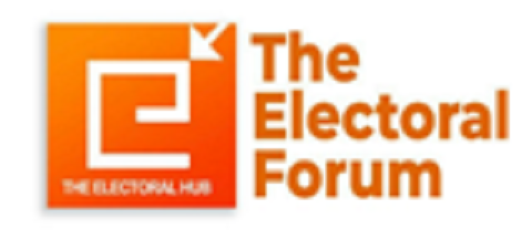By
THE ELECTORAL FORUM
(Twelfth Technical Session Public Statement)
The Twelfth Technical Session of The Electoral Forum was held on Thursday, 29, August, 2024 via the Zoom platform. The meeting focused on pressing issues in electoral governance, particularly in light of the upcoming governorship elections in Edo and Ondo states. Discussions centered on electoral adjudications: the implications of the Supreme Court verdicts regarding the governorship elections in Imo, Kogi, and Bayelsa, particularly in light of Athena – Osita Chidoka’s analysis of these governorship election results. The conversation also explored the impact of recent Supreme Court judgments on State Independent Electoral Commissions (SIECs) and Local Government elections, alongside the significance of the recent changes in the Supreme Court’s leadership. The discussions also touched on the effect of Current State of the Nation on Elections such as issues of vote trading, apathy etc. and democracy.

The Chair of the Forum, Professor Adebayo Olukoshi, in his opening remarks, outlined the objectives of the meeting as:
- Analyse recent Supreme Court verdicts and their impact on electoral outcomes.
- Explore the effects of Supreme Court judgments on State Independent Electoral Commissions and local government elections.
- Evaluate the influence of political party internal dynamics on electoral integrity.
- Recommend reforms for election petitions, SIEC independence, party accountability, and civil society engagement.
During the meeting Forum members analysed the recent Supreme Court rulings on the governorship elections in Imo, Kogi, and Bayelsa States. The Forum provided a detailed examination of these verdicts, highlighting the judiciary’s entrenched role in determining election outcomes. The Forum noted that the legal threshold for proving substantial non-compliance in election petitions remains a significant challenge for petitioners, making it difficult to overturn questionable election results. Additionally, there was growing concern about the increasing involvement of judiciary in electoral outcomes. It was noted that the supreme court will keep being embedded in elections as long as politicians refuse to play by electoral rules, and evolve a sound political culture. The political class continue to pose a problem to electoral democracy. Also, judges should uphold their code of conduct of professionalism stop the lobbying for positions in election tribunals thereby be beholden to godfathers who helped them get these positions rather focus on electoral justice and fairness.
The recent Supreme Court judgment on direct funding to Local Government Areas (LGAs) was a central topic of discussion. This landmark ruling marks a significant shift in Nigeria’s fiscal federalism, with far-reaching implications for state/local government relations and the conduct of local elections. The Forum noted that while this judgment aims to strengthen local governance, it also presents new challenges. Some state governments may face substantial reductions in their allocations, potentially up to 77% in some cases. This shift in resource allocation necessitates a reimagining of state-local government relationships and calls for innovative approaches to governance at both levels.
Deliberations also focused on the potential role of the Independent National Electoral Commission (INEC) in local government elections. The Forum highlighted the need for INEC to provide guidance and support to SIECs to improve the quality of local elections.Judicial reform emerged as a critical area of concern. The Forum welcomes the new leadership in the Supreme Court and calls for merit-based appointments, enhanced judicial independence, and the development of clear guidelines for adjudicating electoral disputes. The current electoral system was critically examined, with suggestions for reforms including a possible shift to a mixed electoral system and broadening the scope of acceptable voter identification methods.
The Forum noted with concern the persistent challenges in the electoral process, including violations of electoral guidelines and issues with result collation and announcement. We call for enhanced oversight and strict enforcement of electoral rules. The role of civil society in strengthening Nigeria’s democracy was emphasized, with encouragement for increased civic education and more robust oversight of electoral processes at all levels.
A key theme that emerged was the inseparable connection between democracy and development. The Forum stresses that for democracy to be meaningful, it must deliver tangible developmental outcomes for Nigerian citizens. The Forum also explored the internal dynamics of political parties and their impact on electoral outcomes. Discussions centered on the role of political parties in either upholding or undermining democratic processes. The Forum called for stronger regulatory oversight by INEC and the reinforcement of internal democracy within political parties to prevent the manipulation of electoral outcomes.
After thorough discussions and contributions from Forum members regarding the raised issues, the Forum proposed significant recommendations aimed at addressing burning issues of electoral governance in Nigeria. These recommendations focus on strengthening State Independent Electoral Commissions (SIECs) to ensure they effectively contribute to credible elections, among other objectives. These recommendations include:
- Implement transparent mechanisms for direct funding to Local Government Areas (LGAs) to enhance local governance and development.
- Strengthen the independence and capacity of State Independent Electoral Commissions (SIECs) through legislative reforms and standardized operational guidelines.
- Establish a formal framework for collaboration between INEC and SIECs to improve the quality of local elections.
- Reform the judicial system with emphasis on merit-based appointments and clear timelines for resolving electoral disputes.
- Explore the adoption of a mixed electoral system to enhance representativeness and inclusive politics.
- Invest in innovative technology for voter registration, voting, and result transmission to enhance transparency and reduce electoral fraud.
- Implement strict campaign finance regulations and anti-vote buying measures to curb electoral malpractices.
- Enforce internal party democracy and transparent candidate selection processes within political parties.
- Introduce measures to increase the participation and representation of women, youth, and persons with disabilities (PWDs) in the electoral process.
- Integrate comprehensive civic education into school curricula and launch nationwide campaigns to foster a stronger democratic culture.
Signed
Professor Adebayo Olukoshi, Chairman of The Electoral Forum

